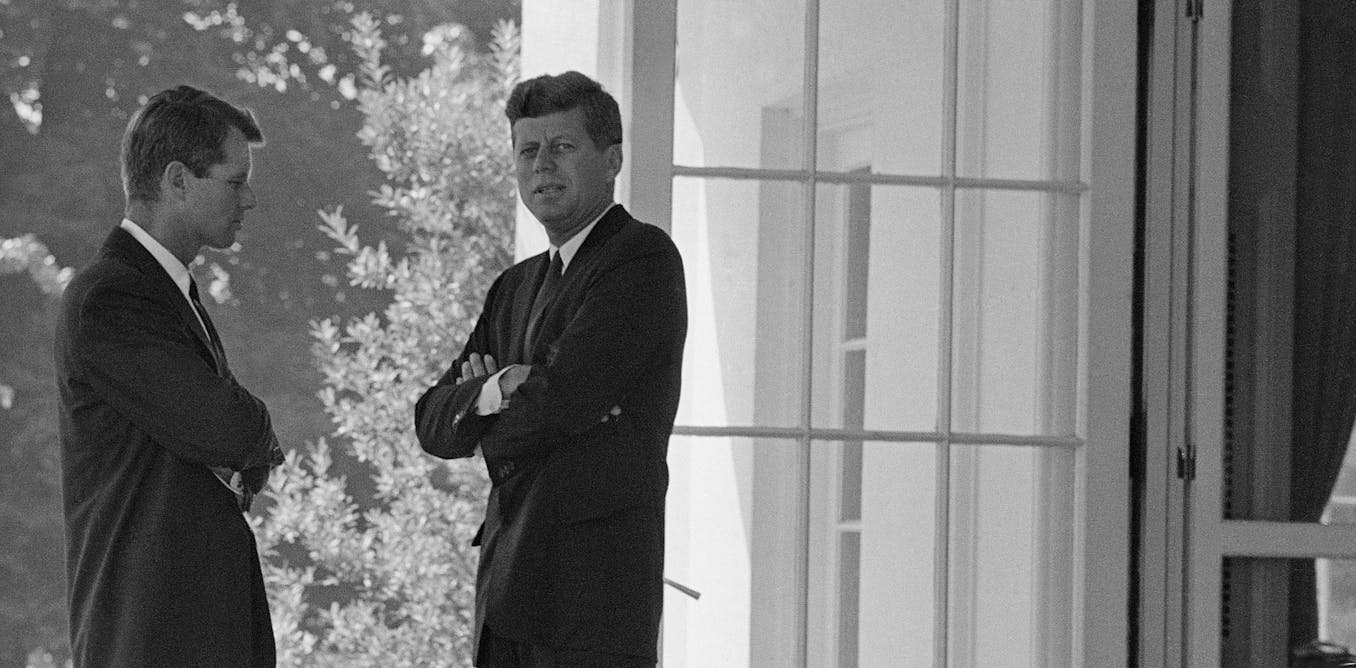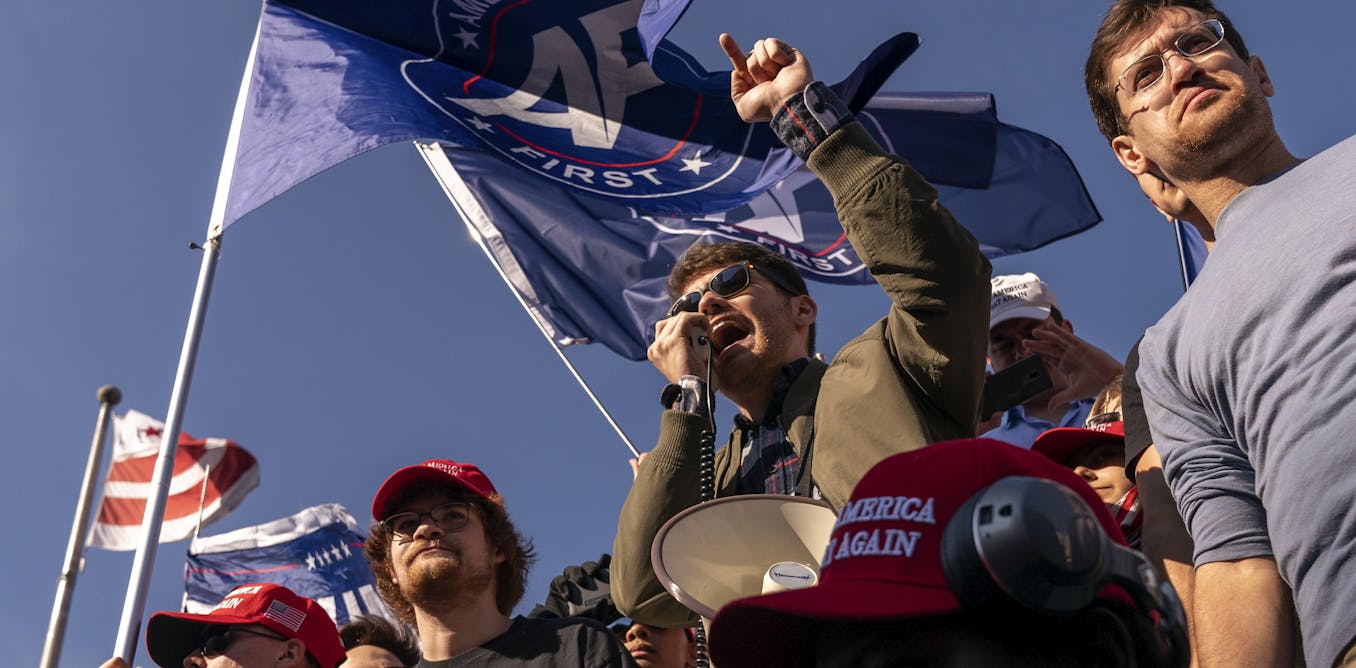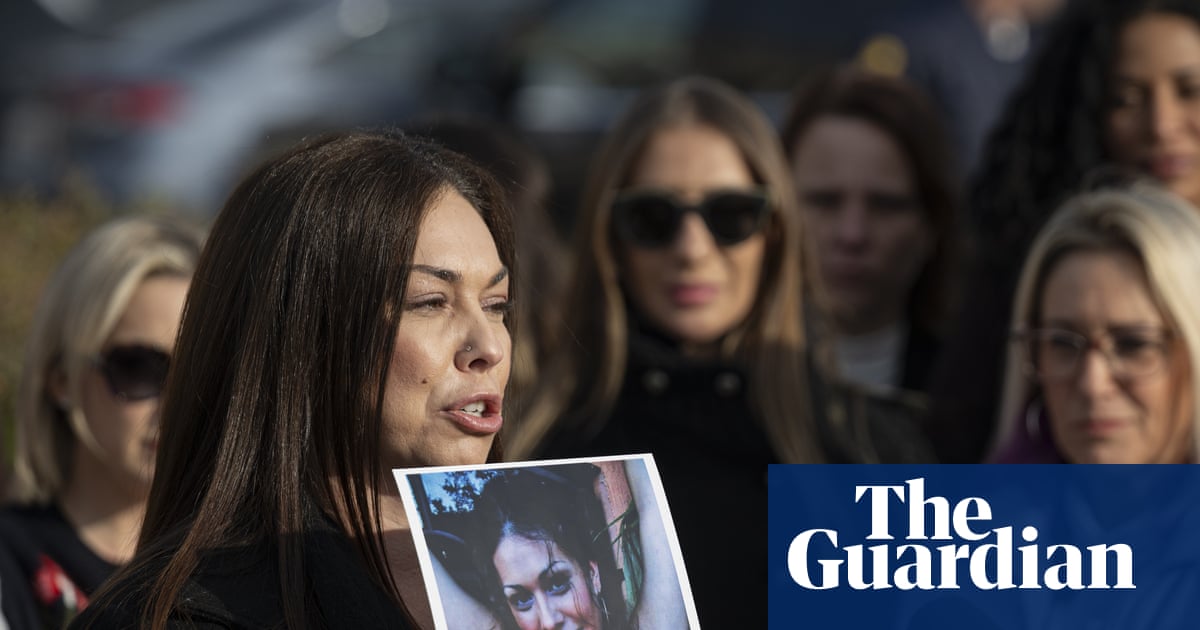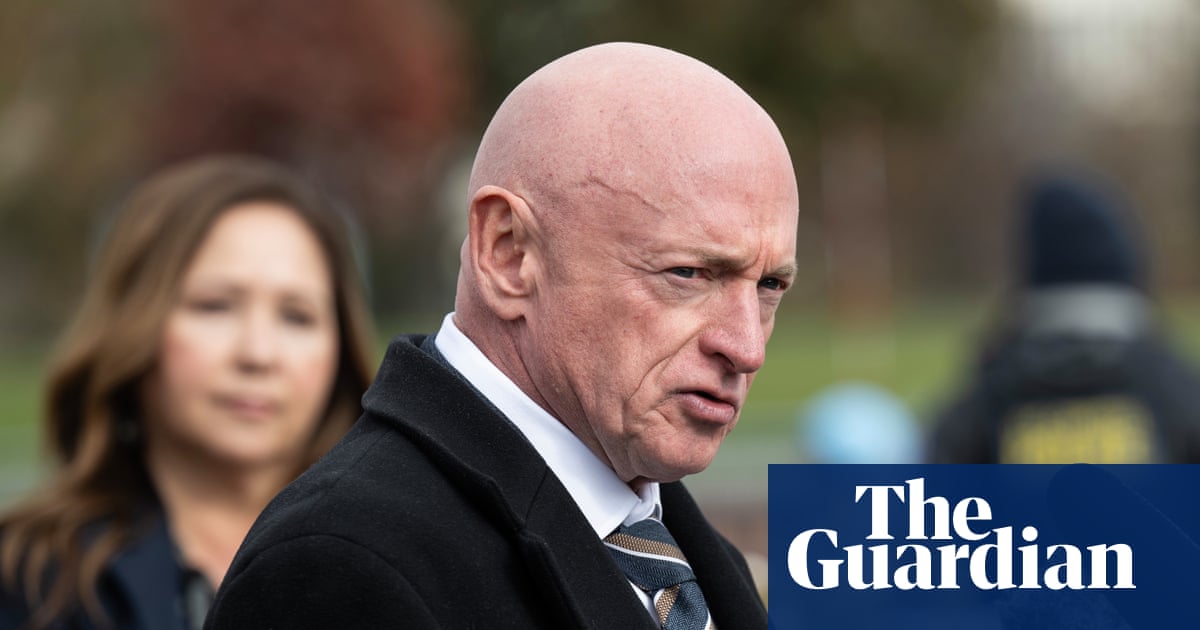Donald Trump’s weaponization of the US department of justice to focus on retribution against political foes, on fulfilling Maga goals and on ranting pardons for allies has seen thousands of lawyers depart or be fired and weakened investigations in civil rights, national security and other areas, say ex-prosecutors and legal experts.
Data compiled by the nonpartisan Justice Connection showed that overall DoJ employment has dropped by about 5,500 lawyers and non-lawyers who have left since Trump took office. That included people who were fired, quit or took a deferred resignation program, underscoring a sharp drop in DoJ resources. By contrast, the department last year employed about 10,000 attorneys, according to DoJ data.
In revamping the department, attorney general Pam Bondi and other top officials have ousted many attorneys they deemed as anti-Trump, including about 20 who worked on the prosecutions of the mob who stormed the Capitol on January 6 to try to stop Congress from certifying Joe Biden as president.
On his first day in office this year, Trump granted pardons to over 1,500 Maga allies who were convicted or charged for their roles in the Capitol attack, which killed several people.
Alongside the drop in veteran prosecutors, some longtime DoJ priorities have shifted under Trump and Bondi to pursue Maga agendas, such as its aggressive crackdown on illegal immigrants, leaving some key areas strapped for resources, say critics.
Among the areas especially hard hit with departures is the civil rights division, which has lost 70% of the 600 lawyers and staff who worked there when Trump took office, according to former DoJ lawyers and reports.
“The purge we’ve witnessed at the justice department has been catastrophic, and it isn’t slowing down,” said Stacey Young, the founder and executive director of Justice Connection, an advocacy group supporting ex- and current DoJ employees. “Thousands have already left because of this administration’s degradation of DoJ’s vital work and its attacks on the public servants who do it.”
Young, who left the department in January after 18 years as a senior attorney, stressed: “We’re talking about dedicated and brilliant professionals who worked on behalf of the public – not any one president – to protect our national security, our environment, our economic interests, and our civil rights. It may take generations to rebuild what we’re losing.”
Other DoJ veterans express similar fears about the purging of attorneys.
“While the Trump administration’s purge of attorneys may help advance his agenda to exact revenge on his perceived enemies, the loss of experience comes at a cost to public safety,” said Barbara McQuade, a former US attorney for eastern Michigan who now teaches law at the University of Michigan.
“Effective federal law enforcement requires training and expertise. Understanding the threats to our national security to prioritize counter-measures is not something someone can learn overnight. Dismantling violent gangs and drug cartels requires institutional knowledge. I worry that as we lose experienced investigators and prosecutors who can disrupt acts of violent extremism before they occur, the risk of a terrorist attack becomes a ticking time bomb.”
McQuade’s concerns are underscored by the loss of veteran attorneys who focused on national security and white collar crime in one key US attorney’s office, the eastern district of Virginia.
That office has been roiled for weeks since Trump badgered Bondi publicly in a Truth Social post in September to bring criminal charges against former FBI director James Comey and New York attorney general Letitia James, two longtime foes of his.
After US attorney Erik Siebert in the eastern district balked at charging Comey because he thought the case was weak, he resigned under pressure from Trump, who then tapped White House lawyer and novice prosecutor Lindsey Halligan to replace him.
Halligan soon filed a two-count indictment of Comey for lying to Congress and obstructing Congress in 2020, both of which he has denied. But the case may well be thrown out partly due to Trump’s beseeching Bondi to prosecute Comey making the charges look vindictive and selective.
Further, one federal judge this month found that Halligan had made “fundamental misstatements of the law” to the grand jury that indicted Comey and a “disturbing pattern” of missteps.
Meanwhile, Siebert’s ouster and Halligan’s moves precipitated the firings and resignations of several veteran lawyers in the Virginia office, long a leader in investigating white-collar and national security crimes.
Among the prosecutors ousted by Halligan were Beth Yusi, Kristin Bird and Michael Ben’Ary, a 20-year veteran in national security who left a note on his door warning colleagues: “The leadership is more concerned with punishing the president’s perceived enemies than they are with protecting our national security.”
“This administration has eviscerated the capabilities of the office simply to exact revenge on Comey and James,” said Paul Pelletier, a former acting chief of DoJ’s fraud section. “This office once led the nation in pursuing white collar and national security crimes. This purposeful DoJ-wide decimation by the administration is both shortsighted and broadly harmful to American people.
“While DoJ’s first duty is to protect those vulnerable to criminal and terroristic harm, it’s pretty obvious that the neutering of experienced economic crime and national security prosecutors creates a perniciously permissive environment for bad actors.”
Meanwhile, at Main Justice, hundreds of veteran attorneys and staff have left the civil rights division and its voting section, as their priorities have shifted under Bondi, say ex-prosecutors familiar with their operations.
The leader of the division, Harmeet Dhillon, has publicly said that it had a surge of applications, but to date only about a dozen positions have been filled, according to reports.
“Core workstreams of the division, including protecting minority voting rights and civil investigations of law enforcement misconduct have largely ground to a halt. And some resolutions of cases initiated under prior administrations – the result of years of work and cooperation with local authorities – have been reversed or abandoned,” said Jacqueline Kelly, the former chief of the civil rights unit in the criminal division of the SDNY US attorney’s office who left her post over the summer.
Kelly noted that “a substantial portion of remaining resources of the division have been steered to more unorthodox initiatives such as aggressive enforcement on college campuses relating to protest activity.
“You don’t need a crystal ball to see how this decimation and redirection of resources could lead to a resurgence of unlawful discrimination and constitutional violations for years to come.”
Similarly, the voting section has been hurt by staff cuts, with the number of lawyers going from about 30 to less than half, according to a lawyer familiar with the section and reports.
In another shift, the mission of the voting section has become aligned closely with Trump’s radical election agenda. DoJ has backed the legality of Texas’s redistricting plan to help the Republican party pick up five seats in the 2026 midterms, while earlier this month it challenged California redistricting aimed at helping Democrats win as many as five more seats.
“The DoJ is supposed to represent all Americans, without regard for party,” said David Becker, a former attorney in the section who now runs the Center for Election Innovation and Research.
“And yet we see this DoJ aggressively intervene to oppose a California redistricting plan approved by two-thirds of its voters, while providing the legal pretext for and supporting a Texas redistricting that the state’s voters have never approved.”
Notably, a federal court rejected the Texas redistricting scheme and ordered Texas to use the 2021 district lines adopted by the legislature.
Becker stressed: “Congress overwhelmingly and on a bipartisan basis authorized the DoJ’s votingsSection to employ about 30 lawyers to enforce laws like the Voting Rights Act, ensuring the least powerful among us had an equal voice in American democracy. Now, a much-diminished voting section is trying to interfere in states’ election processes where congressional and constitutional authorization is far less clear.”
Elsewhere, the number of lawyers working in the DoJ’s public integrity section, which historically has investigated and charged public officials and others engaged in corruption, has shrunk from about 30 at the start of 2025 to two, according to an attorney who worked there.
Prosecutors who left this year say the section was badly weakened when Trump loyalists early on dropped major criminal charges including bribery and wire fraud against then New York mayor Eric Adams. More recently Trump’s grant of clemency for ex-congressman George Santos after only serving three months of a seven-year sentence for wire fraud and other corrupt acts seems to have undermined the section’s work.
“DoJ’s dismissal of the government’s corruption case against Adams and Trump’s grant of clemency to Santos were both unjust,” said Mike Romano who resigned in the spring after working on the January 6 prosecutions and over five years in public integrity.
“Both of these cases show why America needs public corruption prosecutors. Without people working hard to bring corruption to light, people in power can get away with terrible crimes – which seems to be the point, sadly, of Trump’s efforts to slash DoJ.”
Other ex-prosecutors also voice alarms.
“This administration has deliberately kneecapped the ability of the federal government to investigate and prosecute public corruption,” said Michael Gordon, a former prosecutor in Tampa who worked on public corruption cases.
Gordon was fired this summer after over eight years including a stint as a senior prosecutor on January 6 cases against Capitol attackers.
Looking ahead, experts warn the purges and weaponization of the DoJ by Trump and Bondi will continue to have serious repercussions.
“The effectiveness of federal law enforcement depends on the accumulated expertise and institutional memory of thousands of lawyers and investigators who have been sacked or diverted to chasing political enemies down partisan rabbit holes,” said Philip Lacovara, who served as counsel to the Watergate special prosecutor.
“Thanks to Trump’s perversion of the historic mission of the justice department, with enthusiastic cooperation from his pliant attorney general, Pam Bondi, every day offers a bounty of ‘get out of jail free’ cards for criminals at home and abroad.”

 German (DE)
German (DE)  English (US)
English (US)  Spanish (ES)
Spanish (ES)  French (FR)
French (FR)  Hindi (IN)
Hindi (IN)  Italian (IT)
Italian (IT)  Russian (RU)
Russian (RU)  3 hours ago
3 hours ago
























Comments